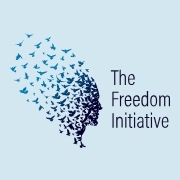For a full text copy of the brief, click here.

The militia-led abduction of Libyan Prime Minister Ali Zeidan in October 2013 was a stark reminder of the urgent need to address the deteriorating security situation in the country. More than two years after the collapse of Muammar Gaddafi’s regime, the central government has not been able to extend complete control over Libya’s vast territory or reign in the various armed groups that emerged during the revolution. The lack of security has stalled progress: rampant insecurity has hampered economic progress and undermined the credibility of the central government, threatening the fragile democratic transition. As such, security sector reform (SSR) must be a top priority in any plan for rebuilding Libya’s future. Although these efforts require trust-building measures to build domestic consensus, the United States can take constructive steps to assist the Libyan government in addressing this challenge.
POLICY RECOMMENDATIONS
- The Obama administration should work with Congress to allocate pre-existing funds in the Global Security Contingency Fund (GSCF) to provide additional security assistance to Libya.
- The United States should work with international partners to ensure delivery of security- related commitments made to Libya during the International Ministerial Conference on Support to Libya in Paris and schedule a follow-up meeting.
- TheUnited States should encourage European Union counterparts to allow increased transparency regarding the pledges it has made in support of Libya’s security sector reform.
- The United States should coordinate with the United Nations Security Council to review the United Nations Support Mission in Libya (UNSMIL) security mandate.
- NATO should expand its advisory role in security sector reform, while avoiding antagonizing other armed groups.
Barah Mikail is a Senior Fellow on Middle East and North Africa at FRIDE. He has authored several books and specialized publications on the MENA region. He is also a member of the Mediterranean Citizens’ Assembly.
Photo credit: United Nations Development Programme, Flickr





